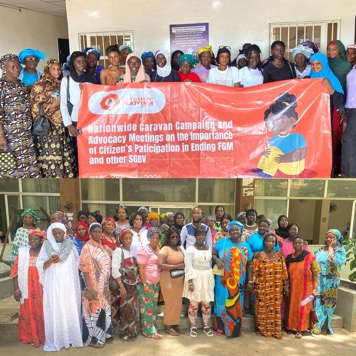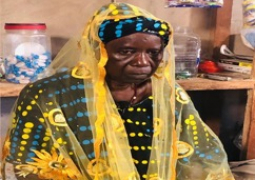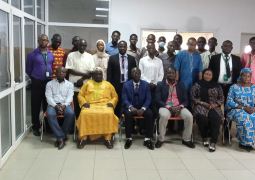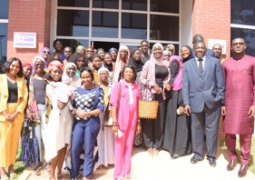
The campaign toured parts of North Bank, Upper River, Lower River, and West Coast Regions and now the Greater Banjul Area.
In essence, the initiative seeks to increase awareness among local leaders and opinion leaders on issues relating to the health complications of FGM and to encourage women's participation in decision-making and leadership especially in major positions and bodies.
During the campaign, the team conducted radio talk shows to popularise women’s rights and promotion of FGM laws.
In the Kanifing Municipality, Amie Jatta Njie, a women leader, said women's issues should be settled by women and not men, noting that it is important that they have concrete dialogue to address issues affecting them.
During the discussion, majority of women agreed that FGM and other sexual violence acts are harmful and that women should not entertain such acts.
They also alluded to the fact that young girls should be protected from all forms of violence and abuse, especially school-going children.
For his part, Imam Foday Kabba Dumbuya of Banjul North, pointed out that FGM is a sensitive issue and ‘if people are to talk about it, they must be careful.’
He added that FGM involves religion, tradition and culture and that everyone would have something to say about it.
Imam Dumbuya reminded that the FGM topic has got to stage that it wants to bring disunity among people in the country.
He explained that religion is wide and ‘if someone believed in something’, it would be difficult to take that from them.
“We believe FGM is a Sunnah, but the Prophet never force people to practice it. I don't blame the religion, but the scholars who differ their opinions in certain things. We supported the ban on FGM and we will not go outside to discuss or go against what the law had stated. It is important to respect the law.” Imam Dumbuya stated.
Modou Lamin Bah, National Assembly Member for Banjul North, also narrated the disagreement they had during the process of banning the FGM law.
He revealed that he was part of the members, who fought for the ban of FGM and the law had given him the mandate to discuss it with his representatives.
“The issue of banning FGM went to an extent of involving politics in it” he observed.
He made reference to the fact that over 51% of registered voters in The Gambia are women and that in view of this percentage, anything they want they can achieve it, but that it all depends on them.
The parliament, he added, had taken the decision and they all believe the decision was in the best interest of the Gambian women.
One of the women in Banjul disclosed that she had never done FGM and none of her three daughters went through it.
She said it was a practice in her husband’s family to go through FGM, but she did not give any excuse for her children to be taken.
“The issue of FGM is very sensitive and as women, we need to dialogue about it until we agree.” she pointed out.
Tabou Njie Sarr, a human rights activist and advocate for FGM and other gender-based violence, underscored the importance of togetherness among women, calling on them to be one another's keeper.
“The issue of FGM is not a fight for women alone, men are included and the law should be respected by all of us.” she said.
The importance of community outreach for women, she went on, is to understand the risks posed by FGM and other gender violence.




